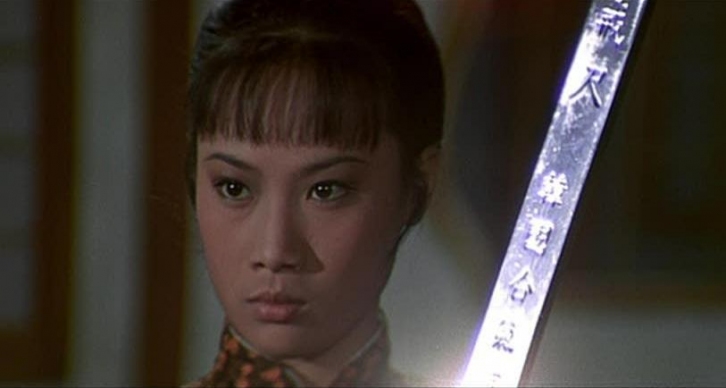A dilapidated industrial space in Rio de Janeiro houses buckets, tables, carts, and more strewn between its pillars, white on top and green on bottom. A wooden, asymmetrical sculpture sits at the center of the frame. From the camera’s perspective, it appears to be a plank cutting through the center of a cube. Within seconds, we will witness another bisection. We hear it before we see it; the sound of tearing tape leads to a man and a woman working their way across the room with orange tape. He peels it, and she stamps it into the ground. Once the task is complete, they run back and forth across the line in an impromptu game of tape ball soccer.
This opening to Júlia Murat’s relationship drama “Pendular” —executed in one static shot— sets the stage for a film where its titular couple creates boundaries and transgresses them constantly. Ele (‘he’ in Portuguese) is a sculptor working in wood as well as industrial materials like wire and aluminum; Ela (‘she’) is modern dancer whose work veers into the abstract. The tape demarcates an area for each artist’s studio.
Attempting to work in tandem aggravates tensions both creative and interpersonal. After suffering setbacks in inspiration that he attempts to medicate with video games, Ele lashes out by reading Ela a negative review of her recent performance. While Ele works with a collaborator on his side of the studio later in the film, Ela launches paper planes as an annoyance. Perturbed by her interruptions, he reminds her, “I’m working. It’s my moment, remember?” The shared space has knocked them out of creative harmony, only allowing a creative moment to one artist at a time. In fact, Ela does her best work when alone in the studio; after a disturbing revelation about their relationship, she gyrates her body and whip-cracks her limbs —clad in underwear and a cardigan— in an empty studio to Joy Division’s thematically appropriate Love Will Tear Us Apart. To further emphasize this discord, Murat denies the viewer a shot of both the dancer and the sculptor plying their trade at the same time, an image that could be expected from any other film about artists sharing a workspace.
“Pendular” excels at delivering the unexpected. By granting them experiences apart from each other that color their interactions, Murat sets the couple on an unsteady journey along a line dividing order from chaos, love from hate, and creativity from derivativeness. Their quest for balance is immersed in the haze of uncertainty that permeates any attempt at forging a long-term partnership, whether romantic or collaborative. Just like a pendulum, Murat effortlessly swings between extremes in a way that feels as organic as one of Ela’s dances.



